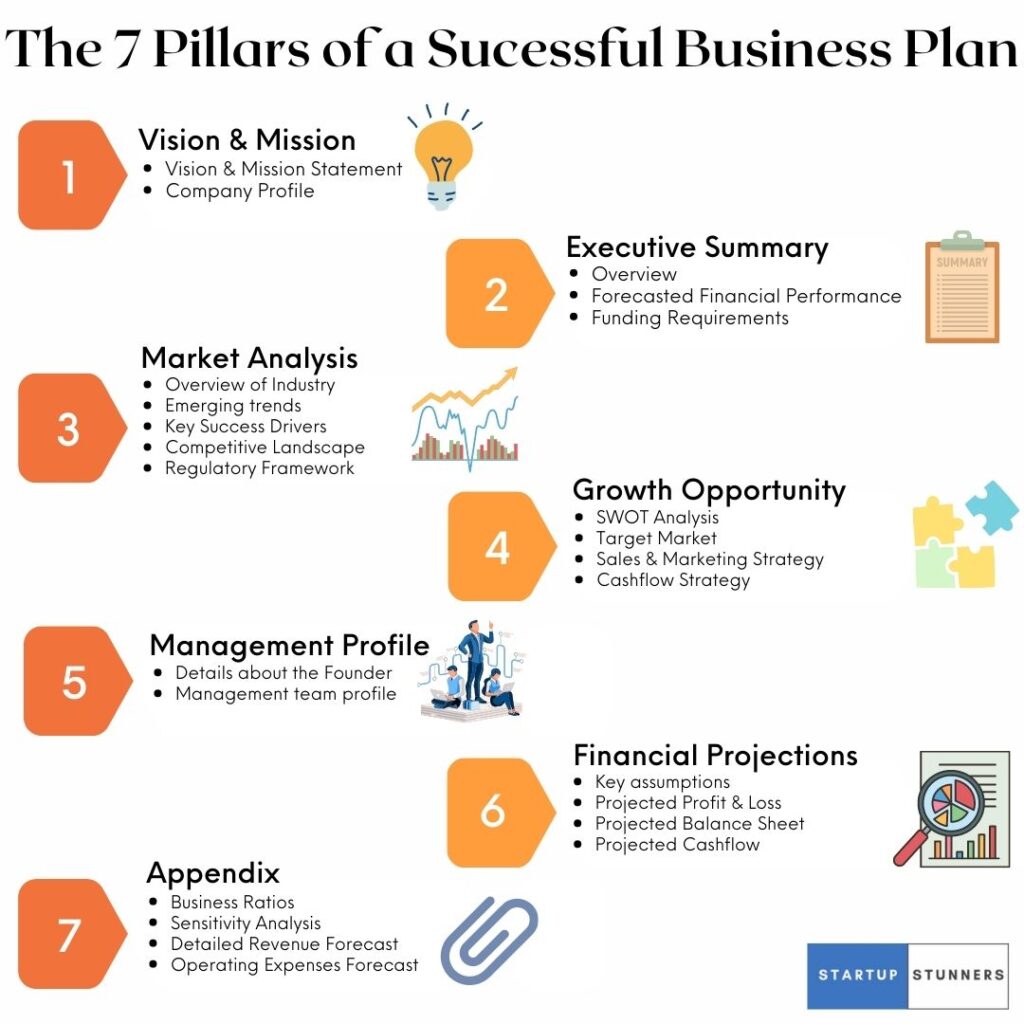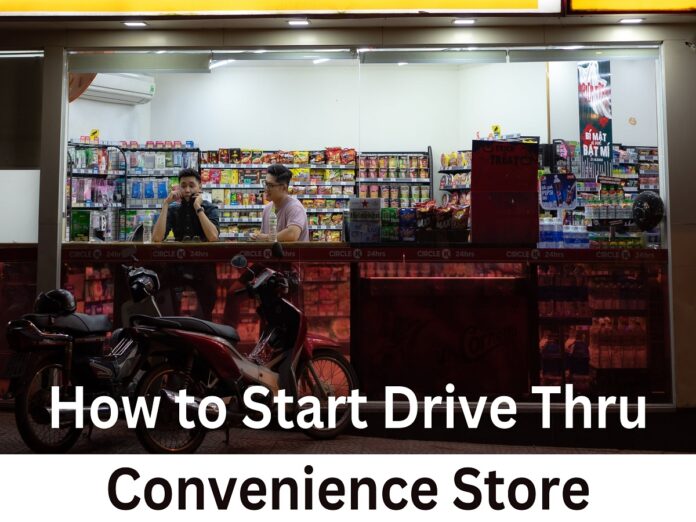Drive thru convenience stores are a relatively new retail concept that is gaining popularity across the United States. As the name implies, these stores allow customers to purchase goods and services without having to leave their vehicles. The concept is a convenient alternative to traditional brick-and-mortar stores, particularly for customers who are pressed for time or have limited mobility.
For entrepreneurs, opening a drive thru convenience store can be a lucrative business opportunity. The advantages of this type of business include lower overhead costs when compared to a traditional store, the ability to operate in smaller spaces, and the ability to serve customers quickly and conveniently. Furthermore, drive thru convenience stores are ideal for customers who want to make quick purchases but do not want to spend time navigating a larger retail space.
Starting drive thru convenience store – Step by Step Guide
Quick Facts
| Industry trend | Growing |
| Investment range | $50,000 – $250,000 |
| Revenue potential (annual) | $500,000 – $1 million |
| Commitment | Full-time |
| Time to build | 6-12 months |
| Profit potential (annual) | $50,000 – $150,000 |
Step 1: Conduct Market Research
It is critical to conduct a thorough market analysis before opening a successful drive thru convenience store. This will assist you in identifying your target audience and competitors, as well as understanding consumer behavior and preferences. Here are some important steps to take when conducting a market analysis:
- Analyze the Local Market: Start by analyzing the local market where you intend to open your drive thru convenience store. This includes an examination of the local population, income levels, and demographic information. You can use this data to identify your store’s target audience and learn about their needs and preferences.
- Identify Competitors: Locate other businesses in the area that provide similar products and services. Direct and indirect competitors are included. Direct competitors are those who sell similar products or services, whereas indirect competitors are those who offer alternatives that may entice customers away from your company.
- Understand Consumer Behavior: Conduct surveys, focus groups, or interviews to learn more about what motivates consumers in the area. This can include the types of products and services that are in demand, the best pricing strategies, and the most effective marketing tactics.
- Determine Pricing Strategies: Determine appropriate pricing strategies for your products and services based on your market research. Understanding the profit margins for each product and service, as well as setting prices that are competitive with other businesses in the area, are all part of this.
- Plan Product and Service Offerings: Determine what products and services your drive thru convenience store will offer based on your market research. This includes choosing products and services that are in high demand and meet the needs of your target market.
Step 2: Write a Business Plan
A business plan is critical to the success of your drive thru convenience store. A business plan describes your company’s vision, including goals, objectives, financial projections, and marketing strategies.

Startup Stunners has been providing top-notch business plan writing services for years, and we’re ready to help you create a comprehensive, effective plan that will propel your business forward. Our team of experts is dedicated to helping you achieve your business goals and secure funding from banks, grants, or other sources. Whether you’re a beginner, entrepreneur, or small business owner, we’re here to help you succeed. Don’t wait any longer, visit startupstunners.com/contact-us/ today and let us guide you on the path to success!
Step 3: Legal considerations
There are several legal considerations to consider when opening a drive thru convenience store. Here are some important factors to consider:
- Company Registration: You must register your business with the state in which you intend to operate. This may incur a fee, and you may be required to provide specific information about your company.
- Licenses and Permits: A variety of permits and licenses, such as a food service permit, a sales tax permit, and a building permit, are required to operate a drive thru convenience store. The requirements for these permits and licenses differ depending on the state and municipality.
- Food Service Permit: Businesses that sell food and beverages must obtain this permit. It ensures that the company follows health and safety regulations and is inspected by the health department.
- Sales Tax Permit: Businesses that sell products or services subject to sales tax must obtain a sales tax permit. The permit authorizes the company to collect and remit sales taxes to the state.
- Building Permit: Any construction or remodeling of the drive thru convenience store requires a building permit. This ensures that the structure complies with all local building codes and regulations.
- Sign Permit: If you intend to display signs promoting your drive thru convenience store, you may need to obtain a sign permit from your local zoning department.
- Alcohol Permit: If you intend to sell alcoholic beverages at your drive thru convenience store, you must obtain a liquor license or permit. The requirements for obtaining an alcohol permit differ depending on the state and municipality.
- Zoning Regulations: Check with your local zoning board to ensure that your business location is zoned properly for commercial use.
- Employment Laws: Ensure that all federal, state, and local employment laws, such as minimum wage requirements, employee classification, and anti-discrimination laws, are followed.
- Insurance: To protect your business and your customers, you will need to obtain various types of insurance, such as liability insurance and property insurance.
You can avoid potential legal issues and protect your business from liability by addressing these legal considerations early on. To ensure that you are fully compliant with all relevant laws and regulations, you should consult with an attorney or legal professional.
Step 4: Construction and Equipment
When designing a drive thru convenience store, the layout and structure of the building must be taken into account. Here are some important considerations to bear in mind:
- Drive thru Lane: The drive thru lane should be designed to allow customers easy access and exit. It should be wide enough to accommodate various vehicle sizes and have enough space for cars to queue during peak hours.
- Building Design: The structure should be both functional and aesthetically pleasing. Consider using materials that are long-lasting and require little upkeep, such as concrete or metal. The structure should also be designed to house necessary equipment such as refrigerators, freezers, and cash registers.
- Signage: A drive thru convenience store requires signage to help customers identify the store and locate the drive thru lane. Consider using bright colors and legible fonts that are visible from a distance.
- Parking: The parking lot should be designed to accommodate as many customers as possible. This could include specific parking areas for pickup orders or curbside delivery.
- Accessibility: The building should be designed to accommodate disabled customers, including wheelchair accessibility and appropriate signage.
When starting a drive thru convenience store, it is critical to choose the right equipment. Here are some important factors to consider:
- Refrigeration: To store perishable items such as dairy products, meat, and frozen food, you will need to invest in high-quality refrigeration equipment such as coolers and freezers. To keep your products fresh, look for equipment that is energy-efficient and has a dependable temperature control system.
- Shelving: It is critical to choose the right shelving to maximize your display space and make it easy for customers to find what they are looking for. Consider adjustable shelving to accommodate products of various sizes and shapes.
- Point-of-Sale System: A point-of-sale (POS) system is required for processing customer orders and inventory tracking. Look for a user-friendly system that integrates with other business management software.
- Security: It is critical to invest in security equipment such as surveillance cameras and alarm systems to protect your store from theft and vandalism.
- Additional Equipment: Depending on the products you intend to sell, you may need to purchase additional equipment such as coffee makers, microwaves, or ovens.
Step 5: Select a reliable and secure point-of-sale system
A reliable and secure point-of-sale (POS) system is critical for a drive thru convenience store. Here are some important factors to consider when choosing a POS system:
- Functionality: Look for a system that meets your company’s specific needs, such as processing transactions, managing inventory, and generating sales reports.
- Security: The POS system should be built to safeguard customer data and prevent unauthorized access. Look for a system that protects data with encryption and other security features.
- User-Friendliness: The system should be simple to use for both employees and customers, with clear instructions and simple navigation.
- Compatibility: Make sure the POS system works with other business management software and hardware, such as inventory management systems and payment processing equipment.
- Customer Support: Look for a system that provides dependable customer support, including technical assistance and employee training.
- Price: The price of POS systems varies greatly depending on their features and capabilities. Consider your budget and select a system that provides the functionality you require at a reasonable price.
Step 6: Marketing and promotion
Marketing and promotion are critical components of the success of any business, including a drive thru convenience store. Here are some important steps to take when developing a marketing strategy:
- Determine your target audience: Knowing your target audience is essential for developing an effective marketing strategy. Consider your local community’s demographics as well as the types of products that are likely to be popular among your customers.
- Create a branding strategy: Developing a strong brand identity is critical for increasing customer recognition and loyalty. This may entail creating a logo, deciding on a color scheme, and designing packaging and signage.
- Make use of social media: Social media can be an effective tool for promoting your company and engaging with customers. Create profiles on social media platforms such as Facebook, Instagram, and Twitter to share updates and promotions.
- Provide discounts and promotions: Offering discounts and promotions is a great way to attract customers and build loyalty. Consider offering first-time customers discounts or loyalty programs for frequent visitors.
- Collaborate with local businesses: Collaborating with local businesses can help you gain visibility and attract new customers. Consider collaborating with neighboring coffee shops or restaurants to offer joint promotions or cross-promote each other’s businesses.
- Advertise locally: Local newspapers, radio stations, and billboards can help you increase your visibility and attract new customers.
Step 7: Hiring and Training
A successful drive thru convenience store requires adequate staffing and training. Here are some important factors to consider when hiring and training employees:
- Determine your staffing requirements: When deciding how many employees to hire, consider the size of your store and the volume of business you expect to handle.
- Develop job descriptions: Create detailed job descriptions that outline each position’s responsibilities and requirements. This will help you hire employees with the necessary skills and experience.
- Hire dependable employees: Hire employees who are dependable, friendly, and capable of working in a fast-paced environment. Consider running background checks and checking references to ensure that you are hiring reliable people.
- Provide comprehensive training: Ensure that your employees are familiar with your products, equipment, and procedures by providing comprehensive training. On-the-job training, online training modules, and in-person training sessions are all possibilities.
- Provide ongoing support: Provide your employees with ongoing support and guidance to help them succeed in their roles. Regular check-ins, performance evaluations, and additional training as needed may be included.
- Foster a positive work environment: Fostering a positive work environment can boost employee morale and reduce turnover. Provide competitive wages and benefits, as well as opportunities for advancement and a supportive workplace culture.
You can improve customer service and increase the efficiency of your business operations by hiring and training a skilled and motivated team. It is critical to invest in your employees and provide ongoing support to ensure that they can meet your expectations and provide excellent customer service.
Step 8: Insurance
Starting a drive thru convenience store necessitates the purchase of insurance. Here are some important factors to consider when choosing insurance policies:
- Liability insurance: Any business that interacts with customers must have liability insurance. This type of insurance protects your company from lawsuits and claims resulting from accidents, injuries, or property damage on your property.
- Property insurance: Property insurance protects your company against damage or loss caused by natural disasters, theft, or other occurrences. This insurance can protect your property, equipment, inventory, and other assets.
- Workers’ compensation insurance: Most states require workers’ compensation insurance, which covers employees who are injured or become ill on the job.
- Auto insurance: If your employees will be driving company vehicles or making deliveries, you must have auto insurance to protect your company from accidents and other incidents.
- Business interruption insurance: If your business is forced to close temporarily due to a covered event, such as a natural disaster or power outage, business interruption insurance can provide financial assistance.
Conclusion
Starting a drive thru convenience store can be a profitable and rewarding business venture. You can create a solid business plan, secure financing, and navigate legal and regulatory requirements by following the steps outlined in this blog post. You can also attract and retain customers by choosing the right location, designing an efficient layout, and offering a diverse range of products.
Overall, opening a drive thru convenience store necessitates meticulous planning and attention to detail, but with the right strategies and resources, you can build a successful and profitable business that serves your local community.
Frequently Asked Questions
What are the benefits of opening a drive thru convenience store?
Drive thru convenience stores provide customers with a convenient and efficient way to purchase goods without having to leave their vehicles. This can save time and provide a convenient solution for customers who are short on time. Furthermore, drive thru convenience stores can provide a wide range of products, such as snacks, beverages, and other necessities, which can help attract a diverse customer base.
What are the most important legal considerations when opening a drive thru convenience store?
When opening a drive thru convenience store, legal considerations may include obtaining necessary permits and licenses, adhering to zoning and land use regulations, and adhering to health and safety codes. It is critical to consult with an attorney or other legal professional to ensure that all legal requirements are met.
How do I choose the best location for my drive-up convenience store?
Consider factors such as visibility, accessibility, and foot traffic when choosing a location for your drive thru convenience store. Look for a location with plenty of parking and easy access to major roads and highways. Consider the demographics of the surrounding area as well, such as population density and income levels.
What are the most popular items to sell in a drive thru convenience store?
Snacks, beverages, tobacco products, and other necessities such as toiletries and over-the-counter medications may be popular items to sell in a drive thru convenience store. To appeal to a wide range of customers, it is critical to offer a diverse range of products.
How should I market my drive thru convenience store?
To attract new customers, you can promote your drive thru convenience store using strategies such as social media marketing, advertising, and offering promotions and discounts. It is critical to maintain a strong online presence and engage with your customers via social media and other digital channels.
What are the staffing needs of a drive thru convenience store?
The number of employees needed for a drive thru convenience store will be determined by the size of your business and the volume of customers you expect to serve. To oversee operations, you will need to hire cashiers, stockers, and possibly a manager or supervisor. To ensure the smooth operation of your business, it is critical to hire dependable and motivated employees and to provide comprehensive training.






